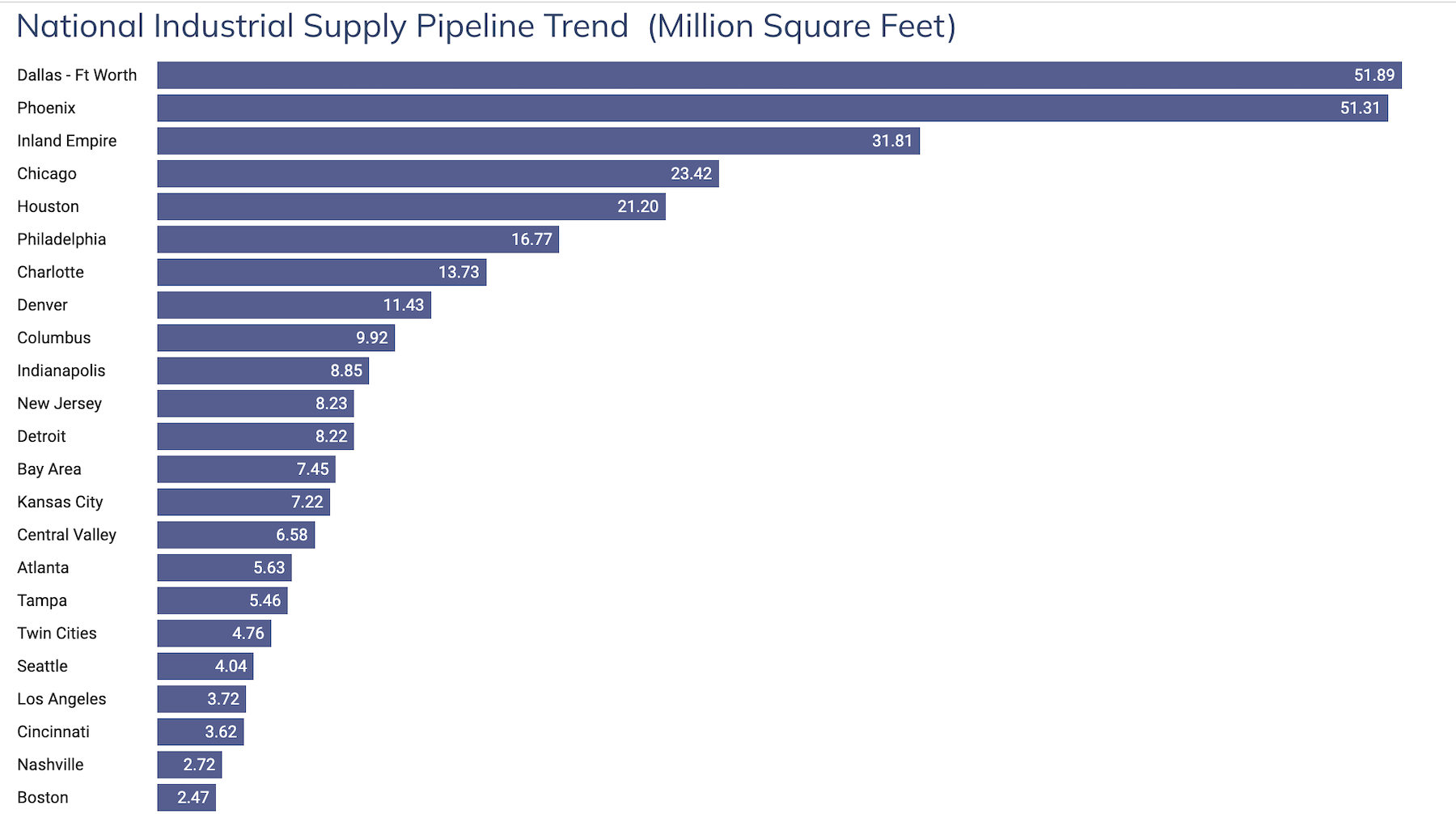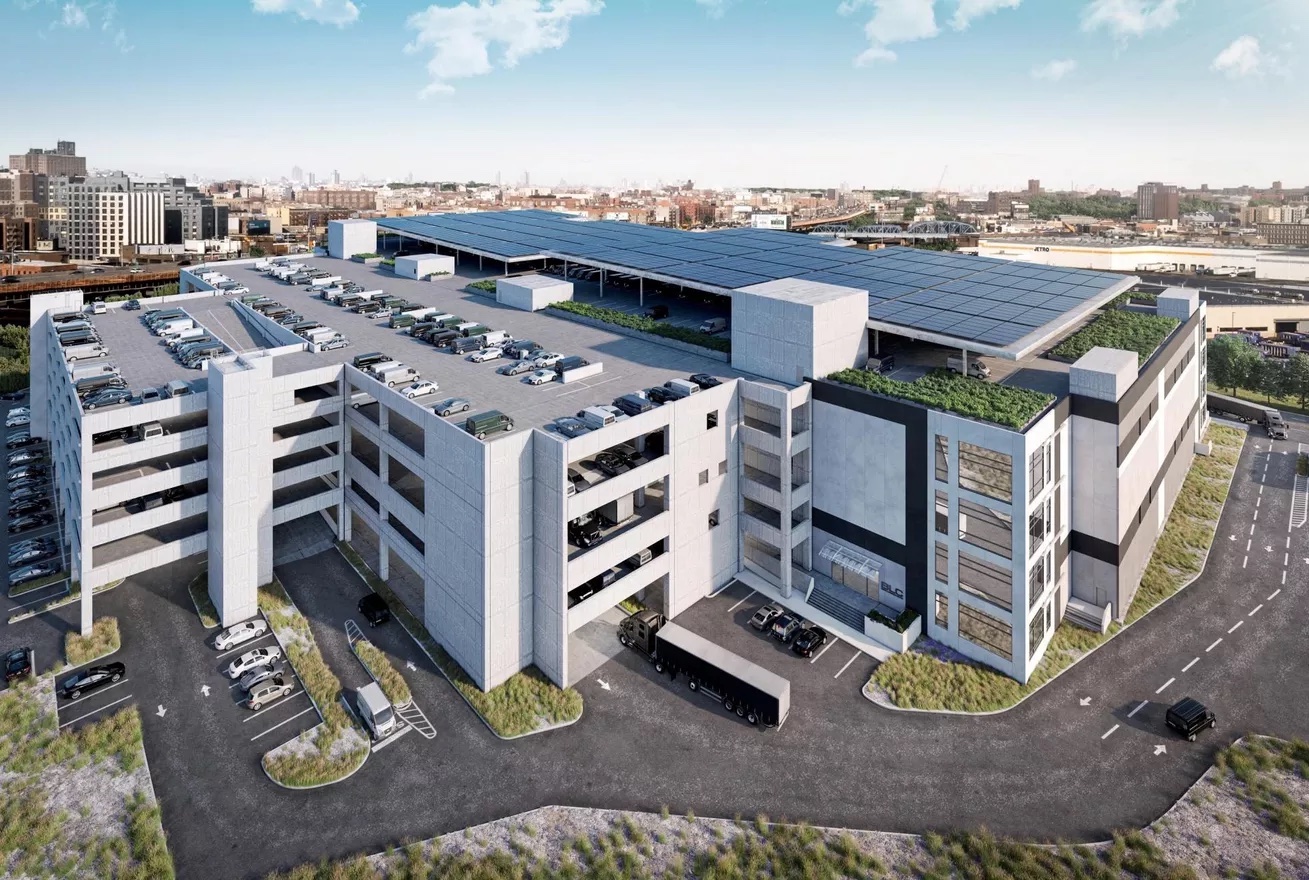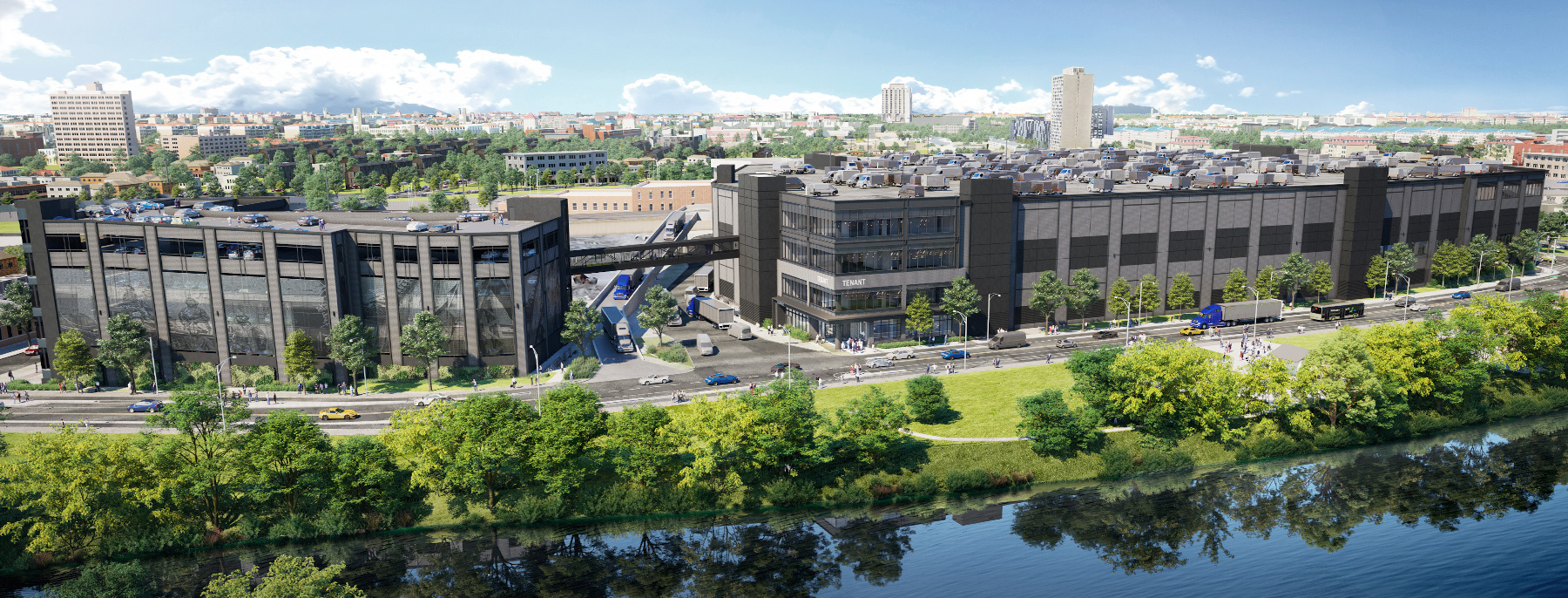For the past several years, Industrial has been one of the hottest sectors in commercial construction. Through August 31 of this year, there were 566.71 million square feet of industrial space for manufacturing and distribution under construction, according to CommercialEdge’s National Industrial Report for September 2023.
However, construction starts in this sector through August dropped to 204.3 million sf, from 614.2 million in 2022 and 586 million sf in 2021. Concerns about inflation, supply chain snags, and labor have made speculative development in this sector riskier. And as e-commerce has flattened, demand for logistics centers has “normalized,” according to CommercialEdge.

The Dallas-Fort Worth Metroplex led all metros with 51.89 million sf of industrial space under construction as of August 31, the equivalent of 5.8 percent of its total rentable stock. Phoenix had 51.31 million sf under construction, 14.1 percent of its total stock, including Airpark Logistics Center, a three-building 1.4 million-sf facility developed by Creation and designed by LGE Design|Build, which just opened in the suburb of Goodyear, Ariz. And in southern California, which has the largest logistics cluster in the nation, the Inland Empire had 31.81 million sf of industrial space under construction.
Most of the 21.2 million sf under construction in Houston were for logistics parks, estimates CommercialEdge.

While construction activity is expected to dip slightly next year and then more steeply in 2025 and 2026, CommercialEdge is predicting rebounds in 2027 and 2028. And the current trend toward a “just in case” inventory strategy has meant that logistics centers are getting bigger to carry the extra goods.
More markets building multistory warehouses
Chicago, at 23.42 million sf, is among the top five markets for new industrial construction. One of the projects there is 1237 W. Division Street, the region’s first multistory logistics facility. The 1.2 million-sf building, which is scheduled for completion in the third quarter of 2024, is located downtown in Chicago’s Goose Island neighborhood. With a 36-ft clear height and 1,600 vehicle parking spaces, 1237 W. Division will serve more than $2 billion in ecommerce customers within a five-mile radius.
The Chicago facility is one of five case studies examined in JLL’s Fall 2023 report on Multistory Warehouses.
JLL’s report includes a history of urban logistics, which in New York City dates back to 1900. The report also notes how the U.S. has been a relative newcomer to multistory warehouse development, compared to land-constrained markets in Europe and Asia (the latter of which has some warehouses that are 22 floors).
Because vertical warehouses often provide development solutions under tight land conditions, automobile parking is a crucial component, says JLL. Typically, these facilities double as last-mile distribution and fulfillment centers. In New York, for example, projects either under construction or in the planning/proposal stage total 9.4 million sf of additional last-mile logistics space.
One of JLL’s case studies is the 385,000-sf Red Hook Logistics Center in Brooklyn, N.Y., which opens next year and, according to JLL, “combines multiple levels of ultramodern Class A functionality with immediate access to one of the country’s largest concentrations of consumers.” The building will have 19 dock-high doors, eight drive-in doors, and a 31-ft 4-inch clear height.

The 1.3 million-sf Bronx Logistics Center, which opened in the second quarter of this year, is the largest such facility in New York City, and the first on the East Coast built to earn LEED Platinum certification. The building has two warehouse floors, each 250,000 sf, accessed nearly 800 ft from one another through separate entrances. It has 48 loading docks, and the single-largest availability of parking in the market. Bronx Logistics is also distinguished by its rooftop greenery and solar array.
JLL states that while coastal cities, because of their population densities and costly land, have, until recently, been the primary markets for urban logistics development, they are now being joined by metros like Atlanta, Miami, Dallas, Houston, and Seattle (where, ironically, the first multistory warehouse in the U.S. was built. Called Georgetown Crossing, this three-story 590,000-sf facility opened in 2018).
Opportunities call for agile design
JLL’s report cites opportunities and challenges in the future of last-mile buildings. Developers must grapple with outdated zoning, NIMBYism, land availability and growing competition for that land from developers of assets like hotels and housing.
Developers and their AEC partners must be agile in their architectural and design considerations. Where should the loading docks be? Should the building include offices? How should the building’s roof be utilized?
Developers need to account for where warehouse employees and delivery trucks will park. And to what extent should new technologies, like electric bikes and scooters and EV chargers be incorporated into the building’s operational and delivery strategies?
JLL’s report advocates for human-centric design, and anticipates that acquisitions are likely to shape the industrial sector’s future.
Related Stories
| Aug 11, 2010
PCL Construction, HITT Contracting among nation's largest commercial building contractors, according to BD+C's Giants 300 report
A ranking of the Top 50 Commercial Contractors based on Building Design+Construction's 2009 Giants 300 survey. For more Giants 300 rankings, visit http://www.BDCnetwork.com/Giants
| Aug 11, 2010
Webcor, Hunt Construction lead the way in mixed-use construction, according to BD+C's Giants 300 report
A ranking of the Top 30 Mixed-Use Contractors based on Building Design+Construction's 2009 Giants 300 survey. For more Giants 300 rankings, visit http://www.BDCnetwork.com/Giants
| Aug 11, 2010
Report: Fraud levels fall for construction industry, but companies still losing $6.4 million on average
The global construction, engineering and infrastructure industry saw a significant decline in fraud activity with companies losing an average of $6.4 million over the last three years, according to the latest edition of the Kroll Annual Global Fraud Report, released today at the Association of Corporate Counsel’s 2009 Annual Meeting in Boston. This new figure represents less than half of last year’s amount of $14.2 million.
| Aug 11, 2010
University of Florida aiming for nation’s first LEED Platinum parking garage
If all goes as planned, the University of Florida’s new $20 million Southwest Parking Garage Complex in Gainesville will soon become the first parking facility in the country to earn LEED Platinum status. Designed by the Boca Raton office of PGAL to meet criteria for the highest LEED certification category, the garage complex includes a six-level, 313,000-sf parking garage (927 spaces) and an attached, 10,000-sf, two-story transportation and parking services office building.
| Aug 11, 2010
Business park grows yet again
Construction has begun on the latest addition to Miami International Commerce Center (MICC) industrial park in Doral, Fla. The 75,000-sf facility will offer businesses 3,000 and 7,000 square feet of space. When the new building is completed, MICC will offer tenants 3.2-million sf of light industrial and flex space.
| Aug 11, 2010
Wood chips to heat school district buildings
An alternative energy plant for the Hartford Central School District in Hartford, N.Y., will be a first for the state's public school systems. Designed by Albany, N.Y.-based CSArch Architecture/Construction Management, the $1.9 million plant will provide heat and hot water to the district's elementary and high school complex, as well as to an adjacent technical school.
| Aug 11, 2010
And the world's tallest building is…
At more than 2,600 feet high, the Burj Dubai (right) can still lay claim to the title of world's tallest building—although like all other super-tall buildings, its exact height will have to be recalculated now that the Council on Tall Buildings and Urban Habitat (CTBUH) announced a change to its height criteria.
| Aug 11, 2010
Manhattan's Pier 57 to be transformed into $210 million cultural center
LOT-EK, Beyer Blinder Belle, and West 8 have been selected as the design team for Hudson River Park's $210 million Pier 57 redevelopment, headed by local developer Young Woo & Associates. The 375,000-sf vacant passenger ship terminal will be transformed into a cultural center, small business incubator, and public park, including a rooftop venue for the Tribeca Film Festival.
| Aug 11, 2010
Nation's first multistory green industrial facility opens in Brooklyn
The $25 million Perry Avenue Building at Brooklyn Navy Yard is the nation's first multilevel green industrial facility and the first building in New York to incorporate building-mounted wind turbines. The wind turbines, along with rooftop solar panels, will provide electricity for the building's lobby and common areas.







